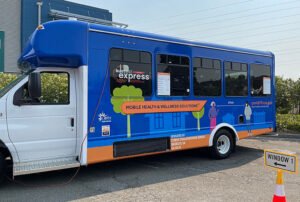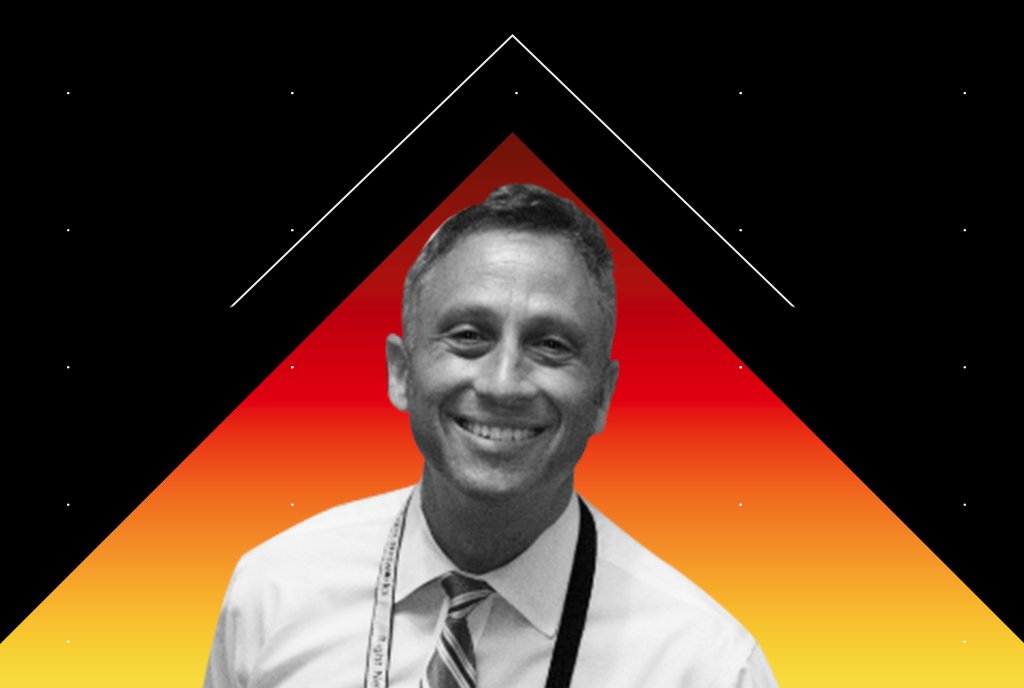“Healing Ourselves Free” is a conversation facilitated by Resist board president Allen Kwabena Frimpong as part of the Justice is Essential series. Frimpong is joined by Tricia Hersey of the Nap Ministry and Emanuel Brown of the Acorn Center for Restoration and Freedom. This segment highlights what happens when we center care as an organizing principle.
Allen Kwabena Frimpong: What happens when we center a care as an organizing principle? What’s possible to reimagine as healers and spiritual practitioners in creating the next world? Just thinking about all of what’s happening right now, we’re in a global pandemic, and there’s just so much to be said about what is possible, even in the midst of crisis, and even celebration.
Tricia Hersey: The first thing that pops up to me is Black and Indigenous people do have care as their organizing principle. You know, that’s how we survived. How would I be up here if care wasn’t the organizing principle around everything in my entire existence? Basically, I have been dropped into the wicked place of North America, and we are trying to create our own way. So that’s why these alternative spaces, these ideas of looking at third spaces, of healthy escapism, of looking at how we create our own worlds and thrive within a place, these temporary spaces of freedom and joy that we create within a place that is wicked and is trying to kill us, literally. And so, I always think about the concept of communal care, and collective care, and soul care, and continuing to create these systems of care that really reach deep, and how radical care will really save us, and how American individualism is what’s killing us. And so, I don’t know. I wouldn’t be alive if I wasn’t centered, if my entire family, if how I grew up, if care was not the central principle. It’s almost as if we’re living in these two worlds, these two different dimensions. It’s the dimension when I look and I’m a Black person, I’m growing up my whole life in the Black church, in the Black community, at a Black school, with my Black parents who were community organizers and militants and who were telling me from the beginning how to survive and telling me about my history. I really was in this place. I saw that. And so, my parents and my ancestors and my family were able to create that, and I think Black people do that all the time. Indigenous people do that all the time. I mean, look at Black people. I mean, we’re sitting up here, we magic, we shining, and we doing our thing, and people can’t even understand—how are we still alive?
James Cone, who’s the father of Black liberation theology, [is] who really roots this work. His work really roots the Nap Ministry’s work, and is a center of my entire framework around this. And so, this beautiful, divine miracle, the divinity of having a Black body, seeing it as a Black gift, and Blackness as a gift to us. That’s really how I think a lot of Black people are able to thrive and survive. I really love to uplift that idea of reimagining what it means to be a healer, reimagining what it means to be a creative or spiritual practitioner. I worked for years in Chicago with young people, teaching art, and poetry, and theater, and all of this beautiful work. And I would always ask them, “Are you guys an artist? Are you an artist?” “Oh, I’m not an artist, I can’t write poetry. I’m not an artist.” And I’m looking at you, and I’m like, look at you. You’re here. You’re alive. You’re dancing. You’re singing. You’ve been able to survive so much trauma when they wanted to take you down. If that’s not a creative being, that’s not an artist able to remix and make a way—you know, your grandmother get a bag of potatoes and y’all eating for two weeks; that’s an artist, you know what I mean? That’s a person who’s able to really make a way. And so to me, I really see Black people, Indigenous people, all marginalized people as healers.
Emanuel Brown: You know, care is at the core of actually decolonizing our relationships, and it’s actually the foundation of freedom. So, when we center care, we actually have the opportunity. It’s the first place of decolonizing our relationships—with ourselves, with the land, with each other, right? And it becomes the foundation of freedom. We can’t have freedom if we don’t have care. So, if you’re engaged in a freedom strategy in which you’re not sitting around saying, “Oh, did I…?” You know, I was joking earlier today as well, I was like, “Have I’ve done all of this other stuff for other people but I haven’t even brushed my own teeth today?” Right? Then what is the effectiveness of what I’m doing for others, if I’m not first caring for myself?
Sign up for our free newsletters
Subscribe to NPQ's newsletters to have our top stories delivered directly to your inbox.
By signing up, you agree to our privacy policy and terms of use, and to receive messages from NPQ and our partners.
I think the other thing—and Tricia was just saying this—like, for BIPOC, for Black/Indigenous/People of Color, I believe that when we center care in our lives, we are reclaiming pieces of our humanity that tried to be etched away through all of the forms of oppression that we experience. So as a Black person, when I reclaim care, I feel like I’m healing the lineages of slaves who were literally not allowed to care for each other as they were falling down in the fields, as they were giving birth, as they were unwell, as they were aging, as they were children. The moment, every time I put that shea butter on, every time I make this glow up happen, I am giving back to those ancestors and simultaneously creating a world for my little great-nephew, who’s about to be three years old, to know something completely different about his life. Right?
And then I think for folks who are not Black folks, for folks who consider themselves to be white or experience white privilege, all of those things—we could get into a whole other conversation about all of that—I think when care is centered there, it’s literally your first step of accountability. Your first step of accountability for lineages of harm, that are cause for institutions and structures that continue to cause harm today, is when you center care, both for yourself, for your family, for your people, and then extending that out. That’s your first step in accountability.
And then finally, when we in our movement spaces, whatever we codify that as nowadays, right? As wherever we’re thinking about our movement spaces, I think, in dealing with the system of capitalism and colonization in this particular country, they’ve really asked us to extract care to get anything done. They were like, “Listen, we’re gonna get you these laws, we’re gonna pass these policies, we’re gonna pass these bills, but you can’t keep talking about, you know, we got to treat you different when you come to the workplace. When we open up our institutions to you, you can’t keep talking about, we got to actually treat you different.” So, they really asked us to extract out care from our movement systems. And so, when we put care back in, we say that our movements are actually whole, complete, intergenerational, emotional, spiritual things that are forces to be reckoned with.
…
Allen Kwabena Frimpong is a cultural strategist, serial cooperative entrepreneur, resource mobilizer, and artist who organizes through social movements for a just transition in philanthropy towards a solidarity economy. He is a cofounder of and managing partner at AdAstra Collective. He is a cohost of the Old Money, New System community of practice that supports resource mobilization initiatives that strengthen social movement ecosystems to be relational, center community healing, and redistribution of wealth through learning and innovation. He is currently a board president of the oldest philanthropic organization for social movements in America, Resist Foundation.
Tricia Hersey is a Chicago native living in Atlanta with over 20 years’ experience working with youth and communities as a teaching artist, community organizer, poet, performance artist and theater maker. Founder of The Nap Ministry, Tricia believes impromptu spectacles can bring awareness to social justice issues that paralyze our communities. Her poetry and performance art are greatly influenced by liberation theology, creative empowerment and womanism.
Emanuel H. Brown, MSW, brings humor, embodiment, and keen political analysis to an audience. He curates experiences that foster engagement and awakening by weaving together, storytelling, poetry, ritual, and music. As a Black Trans* leader in healing/arts/spiritual (HEARTS) Justice, he holds a unique point of view on the praxis of bringing our whole selves on the journey towards freedom. His integrative approach gained the attention of numerous institutions, and movement spaces and he was invited as a consultant, facilitator, presenter, network weaver, and curator. Emanuel is currently the executive director of Acorn Center for Restoration and Freedom.
Cover Image: “Decolonial Self-Care Workshop Natural Dyes with Aunty Ngahiraka.”















